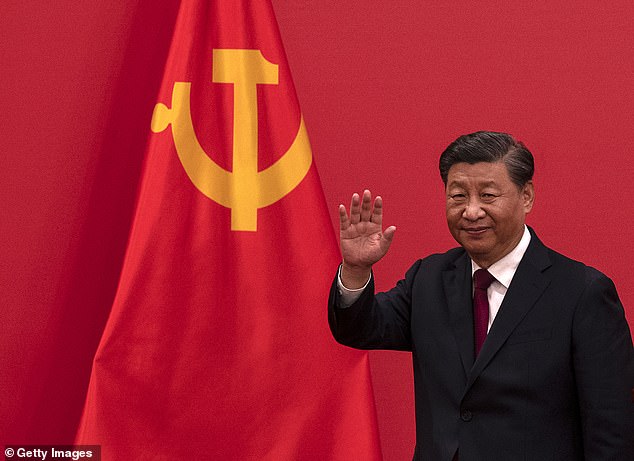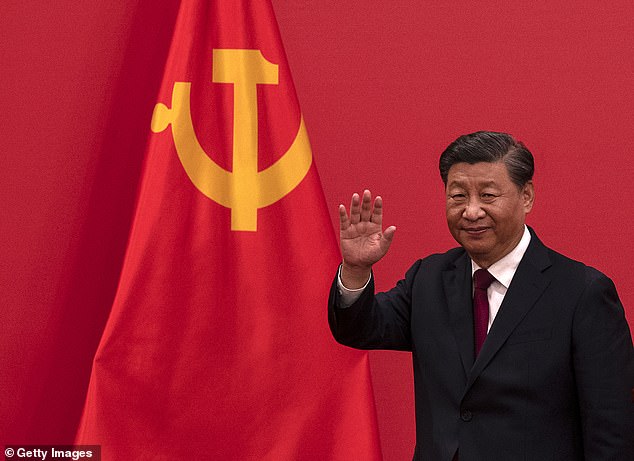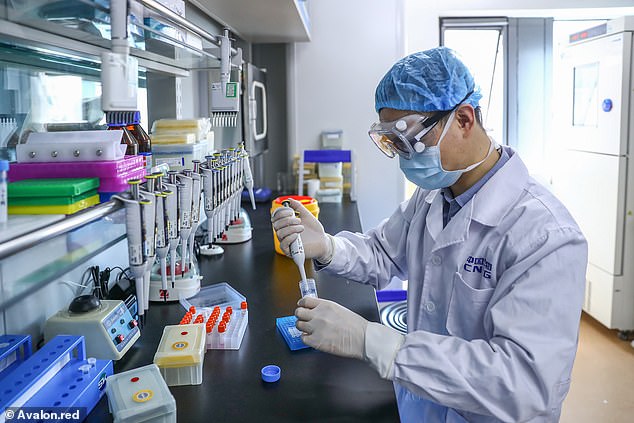Pfizer, Eli Lilly accused of testing drugs on prisoners in Chinese concentration camps




Major American pharmaceutical companies have conducted clinical trials in hospitals with ties to the Chinese military and may have tested drugs on prisoners in illegal concentration camps in China.
A group of bipartisan lawmakers have sent a scathing letter asking the FDA for more information about decades of research by companies like Eli Lilly and Pfizer.
The letter states that these companies are conducting clinical trials in China at medical centers and hospitals affiliated with the People’s Liberation Army (PLA).
Some of this research was conducted in regions where the Chinese Communist Party (CCP) is accused of setting up camps to house Uyghur Muslims and committing genocide against them.
This means that it is possible that the studies were conducted with unwilling participants, the letter states.

Xi Jinping, the General Secretary of the Chinese Communist Party and Chairman of the Central Military Commission, has been in power since 2013

The letter raises concerns about US pharmaceutical research being conducted in hospitals affiliated with the Chinese military, particularly over issues surrounding data security and human rights.
The representatives said: “We believe that US biopharmaceutical companies may inadvertently benefit from data obtained from clinical trials in which the CCP coerced victims to participate.”
In addition, they write that they are concerned that data collected during the clinical trials could be easily accessible to the Chinese Communist Party.
The letter asked FDA Commissioner Dr. Robert Califf to share more information about the clinical trials conducted in China in order to respond to the representatives’ concerns.
These include questions about the FDA’s assessment of Chinese military hospitals, how it measures threats to data security and whether it warned against testing in the Xinjiang Uighur Autonomous Region (XUAR), where China has been accused of “engaging in genocide against the Uighur population.”
The group responsible for the letter includes Rep. John Moolenaar of Michigan, Rep. Raja Krishnamoorthi of Illinois, Rep. Anna Eshoo of California and Rep. Neal Dunn of Florida.
Rep. Moolenaar, Rep. Dunn and Rep. Krishnamoorthi are members of the Selection Committee for the Chinese Communist Party.
Rep Eshoo has concerns expressed about previously sharing US health data with China.
In the letter, the representatives specifically targeted Eli Lilly’s Alzheimer’s drug donanemab, known as Kisunla, and Pfizer’s kidney cancer drug axitinib, known as Inlyta. Axios reported it.
These trials were conducted in military-affiliated hospitals.
According to the investigation, Lilly’s investigations took place at the People’s Liberation Army General Hospital and Medical Faculty and the Air Force Medical University.
The Pfizer trial was conducted at a hospital under the People’s Liberation Army Academy of Military Sciences. according to Fierce Pharma.
According to the representatives, such studies yield “sensitive and proprietary data” that would be difficult to keep secure if conducted in a CCP-sponsored location.
Furthermore, the quality of their data was questioned.
“There are also concerns about the reliability of clinical research data produced overseas by PLA institutions,” the letter said.
“The United States has an interest in seeing the FDA play a greater role in protecting U.S. national security interests.”

Hundreds of thousands of Uighurs have been thrown into forced re-education camps, forcibly sterilized and their families separated in a Chinese crackdown on the minority, the report said. Pictured: Images of Uighurs in a camp in China, released in 2017
This comes amid a broader crackdown on Chinese biotech companies. The House Select Committee is set to vote in September on a bill to suspend contracts with Chinese biotech companies that the committee has identified as a potential national security risk.
In addition to data concerns, the representatives highlight potential human rights issues. A 2022 United Nations report accused China of detaining more than a million Uighurs and other Muslim minorities and sending them to labor camps.
In these camps, international officials have alleged that the CCP has sanctioned forced sterilization, rape, torture, and genocide against the Uyghurs. Most of these camps are housed in the XUAR.
The letter noted that some research has been done in the region, which raises questions about whether participants volunteered. The letter said: ‘Companies simply do not have the ability to conduct due diligence to ensure that clinical trials conducted in XUAR are voluntary.’
The FDA has indicated that it will respond to the lawmakers’ claims.
Eli Lilly told Axios that it “conducts clinical trials around the world to ensure diversity in research and expand access to its medicines. A spokesperson added that the company is committed to IP protection and screens its research partners.”




